- We witness a strange inversion: on the one hand, the endeavor to turn the social contract into a less calculating and more feeling connection among its members; on the other hand, the endeavor to turn the erotic relationship into a contractual one.
- The most successful tyranny is not the one that uses force to assure uniformity but the one that removes the awareness of other possibilities, that makes it seem inconceivable that other ways are viable, that removes the sense that there is an outside.
- Reason cannot establish values, and its belief that it can is the stupidest and most pernicious illusion.
- The failure to read good books both enfeebles the vision and strengthens our most fatal tendency – the belief that the here and now is all there is.
The liberally educated person is one who is able to resist the easy and preferred answers, not because he is obstinate but because he knows others worthy of consideration.

- To recognize that some of the things our culture believes are not true imposes on us the duty of finding out which are true and which are not.
- The artist is the most interesting of all phenomena, for he represents creativity, the definition of man.
- Fathers and mothers have lost the idea that the highest aspiration they might have for their children is for them to be wise… specialized competence and success are all that they can imagine.
- Education is not the taming or domestication of the soul’s raw passions – not suppressing them or excising them, which would deprive the soul of its energy – but forming and informing them as art.
- A good education would be devoted to encouraging and refining the love of the beautiful, but a pathologically misguided moralism instead turns such longing into a sin against the high goal of making everyone feel good, of overcoming nature in the name of equality. … Love of the beautiful may be the last and finest sacrifice to radical egalitarianism.
- Self-interest is hostile to the common good, but enlightened self-interest is not. And this is the best key to the meaning of enlightenment.
- Reason transformed into prejudice is the worst form of prejudice, because reason is the only instrument for liberation from prejudice.
- Law may prescribe that the male nipples be made equal to the female ones, but they still will not give milk.
- Every age is blind to its own worst madness.
There is one thing a professor can be absolutely certain of: almost every student entering the university believes, or says he believes, that truth is relative.

- Once the law is broken with impunity, each man regains the right to any means he deems proper or necessary in order to defend himself against the new tyrant, the one who can break the law.
- Authentic values are those by which a life can be lived, which can form a people that produces great deeds and thoughts.
- A serious life means being fully aware of the alternatives, thinking about them with all the intensity one brings to bear on life-and-death questions, in full recognition that every choice is a great risk with necessary consequences that are hard to bear.
- Human nature must not be altered in order to have a problem-free world. Man is not just a problem-solving being, as behaviorists would wish us to believe, but a problem-recognizing and -accepting being.
- Children tend to be rather better observers of adults’ characters than adults are of children’s, because children are so dependent on adults that it is very much in their interest to discover the weaknesses of their elders.
- There is a perennial and unobtrusive view that morality consists in such things as telling the truth, paying one’s debts, respecting one’s parents and doing no voluntary harm to anyone. Those are all things easy to say and hard to do; they do not attract much attention, and win little honor in the world.
Any notion of the serious life of leisure, as well as men’s taste and capacity to live it, had disappeared. Leisure became entertainment.

- We are like ignorant shepherds living on a site where great civilizations once flourished. The shepherds play with the fragments that pop up to the surface, having no notion of the beautiful structures of which they were once a part.
- The self is the modern substitute for the soul.
- Education in our times must try to find whatever there is in students that might yearn for completion, and to reconstruct the learning that would enable them autonomously to seek that completion.
- An education, other than purely professional or technical, can even seem to be an impediment.
- Plato says a multitude can never philosophize and hence can never recognize the seriousness of philosophy or who really philosophizes. Attempting to influence the multitude results in forced prostitution.
- Rock gives children, on a silver platter, with all the public authority of the entertainment industry, everything their parents always used to tell them they had to wait for until they grew up and would understand later.
- I am now even more persuaded of the urgent need to study why Socrates was accused. The dislike of philosophy is perennial, and the seeds of the condemnation of Socrates are present at all times, not in the bosoms of pleasure-seekers, who don’t give a damn, but in those of high-minded and idealistic persons who do not want to submit their aspirations to examination.
Did Romeo and Juliet have a … “relationship”? The term “relationship” … betokens a chaste egalitarianism leveling different ranks and degrees of attachment.

- Error is indeed our enemy, but it alone points to the truth and therefore deserves our respectful treatment.
- Commitment is a word invented in our abstract modernity to signify the absence of any real motives in the soul for moral dedication.
- The most important function of the university in an age of reason is to protect reason from itself.
- Only Socrates knew, after a lifetime of unceasing labor, that he was ignorant. Now every high-school student knows that. How did it become so easy?
- The self must be a tense bow. It must struggle with opposites rather than harmonize them, rather than turn the tension over to the great instruments of last manhood the skilled bow unbenders and Jesuits of our days, the psychiatrists, who, in the same spirit and as part of the same conspiracy of modernity as the peace virtuosos, reduce conflict.
- Life, liberty, and the pursuit of property were just what Aristotle did not talk about. They are the conditions of happiness; but the essence of happiness, according to Aristotle, is virtue. So the moderns decided to deal with the conditions and to let happiness take care of itself.
Openness, as currently conceived, is a way of making surrender to whatever is most powerful, or worship of vulgar success, look principled.
- Social science and humanities … have a mutual contempt for one another, the former looking down on the latter as unscientific, the latter regarding the former as philistine. … The difference comes down to the fact that social science really wants to be predictive, meaning that man is predictable, while the humanities say that he is not.
- Classical music is a special taste like Greek language or pre-Columbian archeology, not a common culture of reciprocal communication and psychological shorthand.
- Only when the true ends of society have nothing to do with the sublime does “culture” become necessary as a veneer to cover over the void. Culture can at best appreciate the monuments of earlier faith; it cannot produce them.
Never did I think that the university was properly ministerial to the society around it. Rather I thought and think that society is ministerial to the university, and I bless a society that tolerates and supports an eternal childhood for some, a childhood whose playfulness can in turn be a blessing to society.

- This nation’s impulse is toward the future, and tradition seems more of a shackle to it than an inspiration.
- We need history, not to tell us what happened or to explain the past, but to make the past alive so that it can explain us and make a future possible.
- Education is not sermonizing to children against their instincts and pleasures, but providing a natural continuity between what they feel and what they can and should be.
- Nothing is more singular about this generation than its addiction to music.
- Historicism and cultural relativism actually are a means to avoid testing our own prejudices and asking, for example, whether men are really equal or whether that opinion is merely a democratic prejudice.
Students now arrive at the university ignorant and cynical about our political heritage, lacking the wherewithal to be either inspired by it or seriously critical of it.
- Professors of Greek forget or are unaware that Thomas Aquinas, who did not know Greek, was a better interpreter of Aristotle than any of them have proved to be, not only because he was smarter but because he took Aristotle more seriously.
- We are like ignorant shepherds living on a site where great civilizations once flourished.
- Our Nation, a great stage for the acting out of great thoughts, presents the classic confrontation between Locke’s views of the state of nature and Rousseau’s criticism of them… Nature is raw material, worthless without the mixture of human labor; yet nature is also the highest and most sacred thing. The same people who struggle to save the snail-darter bless the pill, worry about hunting deer and defend abortion. Reverence for nature, mastery of nature- whichever is convenient.
- The substance of my being has been informed by the books I learned to care for.
- I am not a conservative — neo or paleo. Conservatism is a respectable outlook… I just do not happen to be that animal.
The distinction between private and public undermines the unity of spiritual strength, draining the public of the transcendent energies while trivializing them because the merely private life provides no proper stage for their action.
- These sociologists who talk to facilely about the sacred are like a man who keeps a toothless old circus lion around the house in order to experience the thrills of the jungle.
- All literature up to today is sexist. The Muses never sang to the poets about liberated women. It’s the same old chanson from the Bible and Homer through Joyce and Proust.
- University convention submerges nature. It issues licenses, and hunting without one is forbidden.
- Nietzsche said the newspaper had replaced the prayer in the life of the modern bourgeois , meaning that the busy, the cheap, the ephemeral, had usurped all that remained of the eternal in his daily life.
- Culture as art is the peak expression of man’s creativity, his capacity to break out of nature’s narrow bounds, and hence out of the degrading interpretation of man in modern natural and political science.
- It may well be that a societys greatest madness seems normal to itself.
- The expectation of substantive unity between natural science and social science has faded…. Gone is the cosmic intention of placing man in the universe.
- The spirit is at home, if not entirely satisfied, in America.
Various kinds of self-forgetting, usually accompanied by illusions and myths, make it possible to live without the intransigent facing of death-in the sense of always thinking about it and what it means for life and the things dear in life-which is characteristic of a serious life.
- The facile economic and psychological debunking of the theoretical life cannot do away with its irreducible beauties.
- Most of all I admire Mozart’s capacity to be both deep and rational, a combination often said to be impossible.
- Socrates’ way of life is the consequence of his recognition that we can know what it is that we do not know about the most important things and that we are by nature obliged to seek that knowledge.
- Freedom of the mind requires not only, or not even especially the absence of legal constraints but the presence of alternative thoughts.
- There is no real teacher who in practise does not believe in the existence of the soul, or in a magic that acts on it through speech.
A new language always reflects a new point of view, and the gradual unconscious popularization of new words, or of old words used in new ways, is a sure sign of a profound change in people’s articulation of the world.
- Intellectuals advertise their superiority to political practice but are absolutely in its thrall. It is no accident that Marxist theory and practice use the intellectuals as tools and keep them in brutal subservience.
- The sirens sing sotto voce these days, and the young already have enough wax in their ears to pass them by without danger.
- The distinction between the world of commerce and that of “culture” quickly became the distinction between infrastructure and superstructure, with the former clearly determining the latter.
- Bacon, Locke, Descartes, Hume, and all the others knew they were giving rights to vulgarity. But in so doing in addition to caring for man’s well-being they were providing rights for themselves.
The first discipline modernity’s originators imposed upon themselves was that of self-restraint, learning to live with vulgarity. Their high expectations for effectiveness were made possible by low expectations of what was to be.
- It is easy today to deny God’s creativity as a thing of the benighted past, overcome by science, but man’s creativity, a thing much more improbable and nothing but an imitation of God’s, exercises a strange attraction.
- The importance of these [college] years for an American cannot be overestimated. They are civilization’s only chance to get to him.
- It was not necessarily the best of times in America when Catholics and Protestants were suspicious of and hated one another; but at least they were taking their beliefs seriously, and the more or less satisfactory accommodations they worked out were not simply the result of apathy about the state of their souls.
- There is no real education that does not respond to felt need; anything else acquired is trifling display.






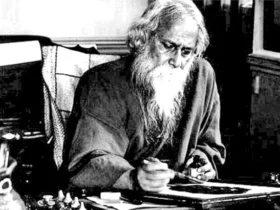




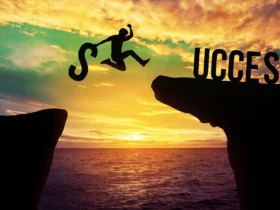









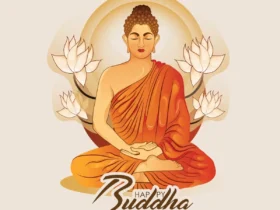



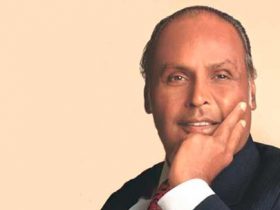


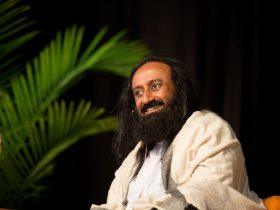




Leave a Reply